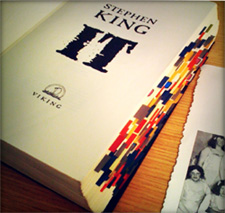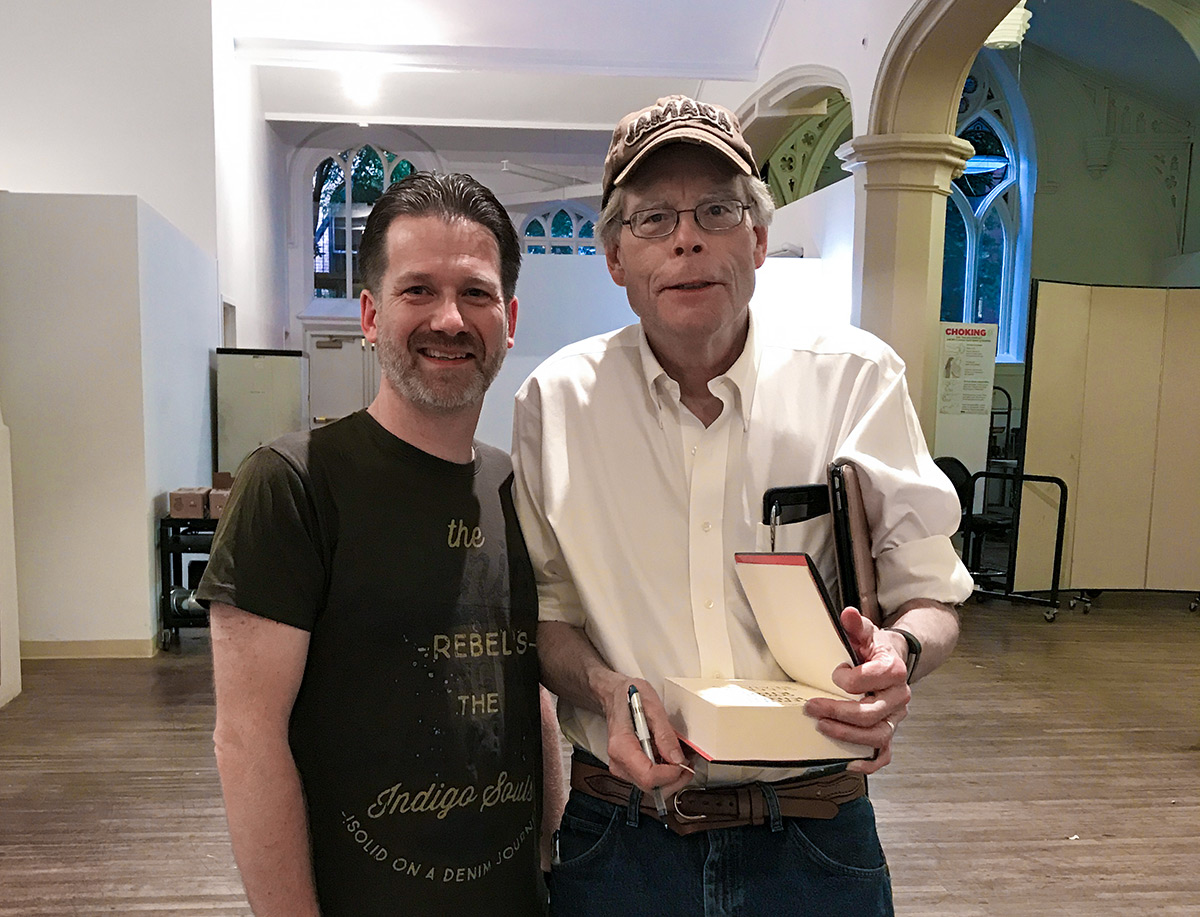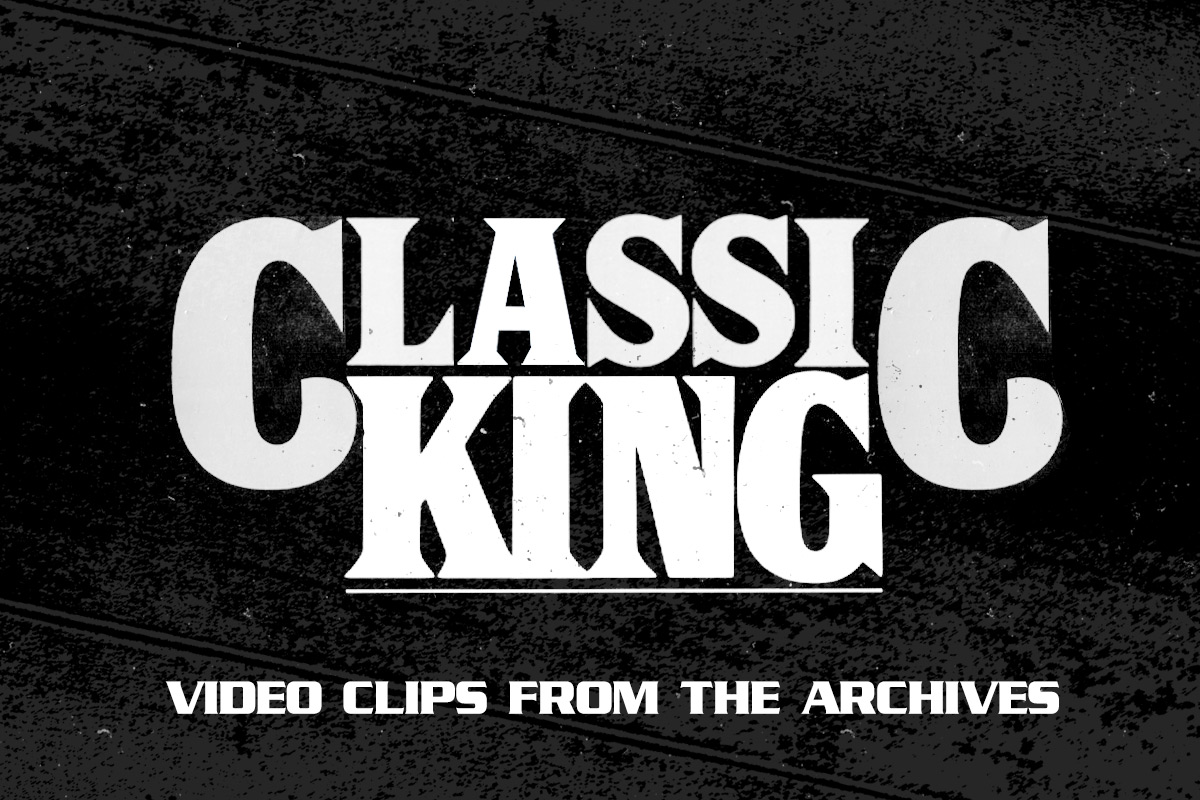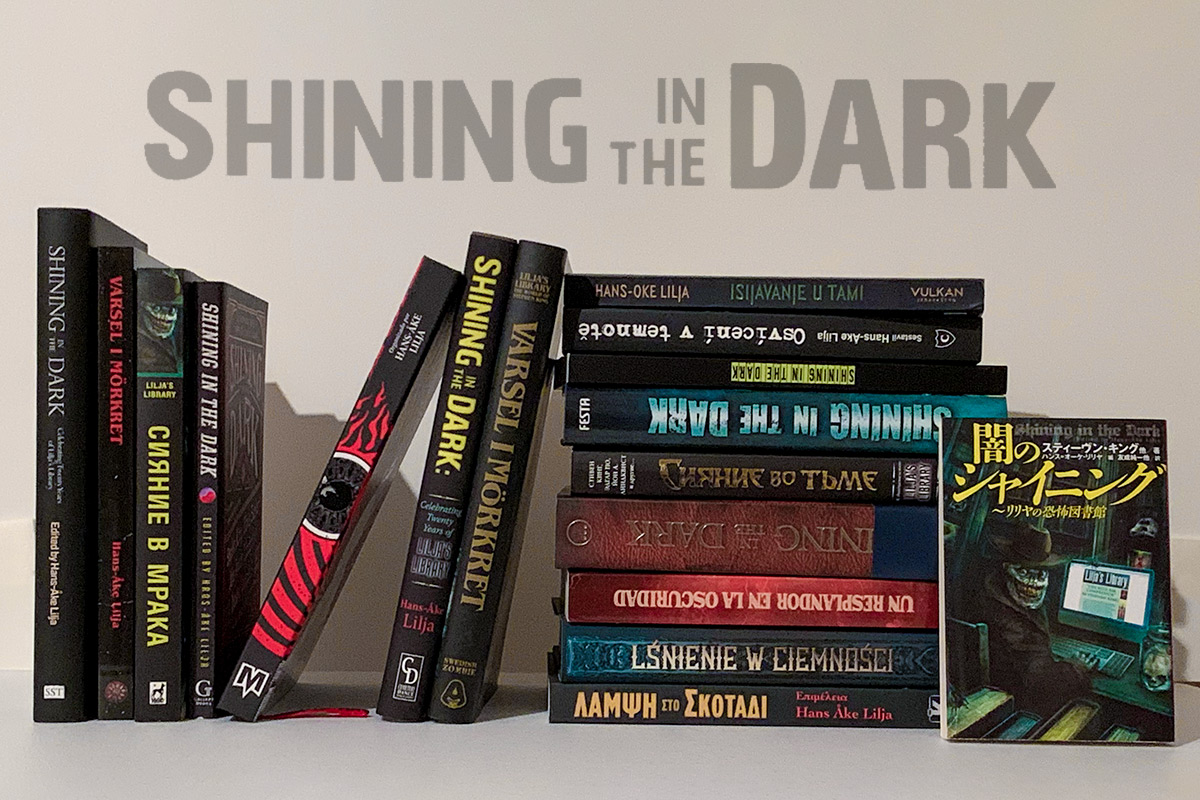David Kajganich
Posted: June 29, 2010
_
 Lilja: David Kajganich has written the scripts to no less than two remakes of King movies; Pet Sematary and IT and I got the chance to talk to him about those scripts. Here is what he had to say.
Lilja: David Kajganich has written the scripts to no less than two remakes of King movies; Pet Sematary and IT and I got the chance to talk to him about those scripts. Here is what he had to say.Lilja: Please tell those that aren’t familiar with your work what you have been doing so far in your career.
David Kajganich: I moved out to Los Angeles in 2003 after selling a spec script called Town Creek. I’d been living in the Midwest, teaching undergraduate courses in literature and writing at a university there, and working on my own projects at night. I loved my life there, so I didn’t want to move to L.A. until I was sure I could get work. When Warner Bros. bought Town Creek, they added a blind deal for a second project, so I made the move knowing I would have work for a year or more.
The blind deal ended up being a remake of the 1956 sci-fi film Invasion of the Body Snatchers, which was called The Invasion. It shot in 2004 with Nicole Kidman and Daniel Craig, and was originally directed by Oliver Hirschbiegel. (Later, James McTeigue directed massive reshoots scripted by Andy and Lana Wachowki.) Town Creek eventually found its way to Lionsgate with Joel Schumacher directing and Michael Fassbinder starring. I remain very proud of both scripts, but the final movies were so altered and rewritten that I don’t feel much of a connection to either of them.
Apart from those two produced movies, I’ve done half a dozen projects for different studios. Some of them have been genre work—including adaptations of Stephen King’s Pet Sematary, as well as an update of the W.W. Jacobs short story “The Monkey’s Paw—but I’ve done some straight drama as well, including an adaptation of Tim Gautraux’s excellent period novel The Clearing, and Mike Finkel’s memoir True Story. The former is about a turf war between the owners of a lumber mill and Sicilian bootleggers in the 1920s Louisiana bayou. The latter regards a disgraced journalist’s relationship with a man accused of familicide.
Lilja: What happened with the remake of Pet Sematary and how did you end up with that job?
David Kajganich: I should say up front that Pet Sematary is my favorite King novel and adapting it was one of the best screenwriting experiences I’ve had, creatively speaking. In its modern way, I think it is easily the equal of anything in the literary canon by Hawthorne or Poe, so I approached the book as a piece of literature as opposed to a horror concept to be pillaged. It was a pure pleasure.
After I turned in my first draft, Paramount went through a top-down regime change and I was given a new executive who had creative ideas I just couldn’t stand behind. They wanted to appeal to younger audiences, so there was talk of making a teenaged Ellie the main character, and etc. It was really heartbreaking, but that’s how the process works sometimes. The studio was gracious enough to let me out of my contract and the project was dormant at the studio until very recently.
The current news is that Paramount has restarted the process with a new producer and writer (Lorenzo Di Bonaventura and Matt Greenberg). I wish I could tell you something about their approach, or how it’s going, but I’m entirely out of the loop now.
Lilja: You are also working on a remake of IT, how did that happen?
David Kajganich: When I heard Warner Bros. was going to give the novel a go theatrically, I went after the job hard. I knew the studio was committed to adapting IT as a single film, so I went back and reread the novel to see if I thought this was even possible, and to try to find a structure that would accommodate such a large number of characters in two different time periods, around 120 pages, which was another of the studio’s stipulations.
Had I not worked with the producers before, I might have been more tentative about trying to pull off such a massive undertaking, but I’d worked with Dan Lin, Roy Lee, and Doug Davison on our original version of The Invasion, and I knew they would fight for good storytelling, and would also give me the time I needed to work out a solid first draft, which they did. They really went to bat for that. We’ve done some tinkering with it and I am just about to turn that draft in to the studio, so we’ll soon know a lot more.
Lilja: Will it be a feature movie or a new TV series? There have been rumors about both.
David Kajganich: In all of my talks with the studio, it has only ever been discussed as a single feature film. The book's length is clearly more suited to a mini-series—and I understand very well why they went that route the last time around—but I think the book’s content is really more appropriate for cinema. I told the studio from the beginning that I felt I needed to be able to write for an R rating, since I wanted to be as candid as the novel about the terrible things the characters go through as kids. They agreed and off I went.
Lilja: What will be different in your version of IT compared to the TV series?
David Kajganich: I think the biggest difference is that we’re working with about two-thirds the onscreen time they had for the miniseries. That sounds dire, I know, but it doesn’t necessarily mean two-thirds the amount of story. I’m finding as many ways as I can to make certain scenes redundant by deepening and doubling others. To me, this is an interesting process because it has the effect of thematically intensifying the whole, but it can lead to dramatic surprises. Certain scenes I thought would be crucial to the coherence of the whole ended up cut, while other scenes, which were somewhat cursory in the book, ended up being pivotal in the script.
I know I’m being vague, but there’s not a lot I can tell you at this point about the specifics, since we’re still very much in development on it. I’ll just say for now that we’re really swinging for the fences.
 Lilja: I guess it’s pretty hard to translate such a massive book to a movie.
Lilja: I guess it’s pretty hard to translate such a massive book to a movie. David Kajganich: It’s been an enormous challenge, yes, but the rewards for me as a writer have been just as big. I’ve looked at every word of the book many times and I’ve spent months working with the text, uncovering all of the connections and nuances. In a way, it’s like taking a look inside Stephen King’s head, which is fascinating. Needless to say, I’ve learned a lot about story-telling, and from a master.
But I know how collaborative the filmmaking process is, and how many cooks will soon begin coming into the kitchen, so I’m really trying to enjoy being in this world more or less alone for the moment.
Lilja: Did you have anyone special in mind for any of the roles when you wrote the script?
David Kajganich: The thing about Stephen King’s writing is that he draws his characters so well, it's hard not to imagine they're real people. I think this is particularly the case with IT. So it honestly didn't occur to me to try to think of actors in those roles. Pennywise is a bit of a different story, though. His manner is so crucial to what's frightening about him, and it's too much fun to imagine all of the nuances different actors could give him. I think there are a hundred actors who could each pull off a fascinating, horrifying Pennywise, and I tried not to get too attached to any one actor in my head. (That said, my dream choice would be Buster Keaton, if he were acting today. Just think about it for a second—can’t you just see that stoic charm put to such unholy use? It creeps me out to no end to imagine it.)
Generally speaking, though, I think the Pennywise in this adaptation is a less self-conscious of his own irony and surreality than was Tim Curry's Pennywise. I think it will be harder to laugh at his antics since, under the permissiveness of an R rating, I was able to give him back a lot of his more upsetting moments from the novel, ones that could never be aired on network television.
Lilja: Is there any way to tell when the fans might see these two movies?
David Kajganich: IMDb is listing Pet Sematary as a 2012 release and IT as 2011. I don’t know where they get their information about these things, but I’ve learned there’s no way to tell. It’s always a tug of war between production timelines, market strategizing, what else is opening and etc. With IT, I've been told the project is a priority for Warner Bros. and the plan is to go big with it, so I assume it will be as soon as possible.
Lilja: Why do you think not one but two Stephen King remakes ended up in you lap?
David Kajganich: I think part of it might be that I try to give genre stories the same respect as other kinds of stories. I wish I’d been able to work as a screenwriter in the ‘60s and ‘70s, when studios were making more serious genre films. Most of my favorite American genre films could never be made today. Take The Exorcist for example: I can so easily imagine the version of that novel a studio might make today, with all of the slow build, quiet character moments, and back stories gone. One of the difficulties, though, is that we all agree—writers, producers, and executives alike—how incredible that movie is. So, in meetings, the studio often wants to have it both ways, or at least try, and I still have faith it can happen. I look at studio movies like The Silence of the Lambs or L.A. Confidential and I know it’s possible to make studio genre films of real literary quality. So I go into those meetings with my guns blazing, knowing that even though it’s likely to end in tears, maybe this time it won’t. This is probably something I should bring up with a therapist.
Also, I think having formally studied literature and fiction writing—rather than screenwriting or film—has made it easier for me to go into studio meetings about novel adaptations with an understanding of how to focus on character rather than concept. Concept is important, it sells tickets, but it’s good to have an instinctive distrust of it. Concept is not plot—character is plot—and I think, too often, studio movies make that mistake. But in the beginning of the process, everyone usually has the best intentions.
Lilja: Where you a fan before you got attached to these two movies?
David Kajganich: Yes, in every way. I was five when Carrie was published, so I grew up with King’s stories and novels as constant reference points. I can chart the timeline of my life pretty well by where I was when I read each of his books. I know a lot of people my age feel the same way. I’ve always felt lucky I was to be able to be a part of the cultural conversation about his books as they came out. When I taught The Shining to undergrads a few years ago, for instance, it was hard to convey to students how rare it was back in the 70s to have a popular genre novel seriously take on issues like domestic abuse and treat them as real issues of character and theme, rather than just plot contrivances. He is a master storyteller who can move easily around the pulp-literature continuum (and often prove it a fallacy), in and out of different genres, and jump from one form to another with shocking ease. So yes, I'm a huge, huge fan.
Lilja: Thank you so much for taking time out of you busy schedule to talk to me. I’m looking forward to see IT once it hits theaters.
David Kajganich: Thanks for asking for this interview. Your site is really fantastic. It's a feather in my cap to be a part of it!





